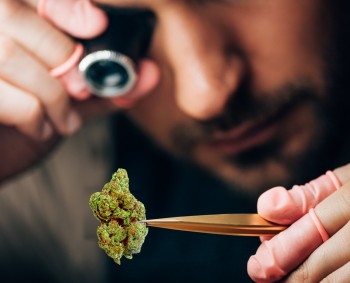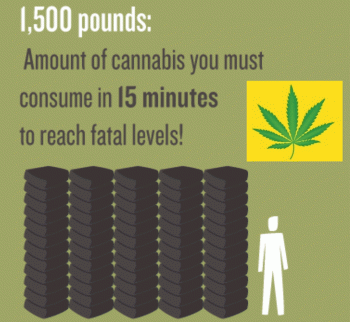How Do We Protect the Cannabis Industry from a Corporate Takeover? Is It Even possible?

Federal cannabis legalization is well on its way. There are federal cannabis bills inching closer to being approved which would end the seven-decade war on cannabis. The MORE Act as it is dubbed, would remove cannabis from the Controlled Substance Act and will effectively legalize the industry on a federal scale.
One might think that the entire cannabis industry would welcome such a change, however not everybody shares the excitement. In fact, some business owners are quite worried about their future – especially smaller businesses are worried about their place in the future of the cannabis industry.
A recent Politico article shed some light on the concerns of these business owners as expressed in this quote;
“It's going to open up a tidal wave of large operators ... sucking up all the capital in the capital markets and essentially rendering social equity participants unable to even get funded,” said Aaron Goines, co-owner of Emerald Turtle, a social equity-owned cannabis delivery company in Massachusetts. “In general for social equity, I think it would be a disaster at this point for federal legalization to occur.”
This is a sentiment echoed by many farmers and smaller business owners who have been burdened with high taxes, inability to bank and many other hurdles that these giant corporations would not have to worry about under a federal legalization scheme.
However, on the other hand – Federal legalization has to come at one point in time and for other cannabis businesses, the lack of federal jurisdiction means that a lot of their product is sitting on shelves not being sold.
California overproduces and a lot of the stocked cannabis gets sold in illegal markets. There are millions of dollars of loss of tax revenue each day that federal prohibition inhibits the option of inter-state commerce.
Furthermore, with Mexico and Canada already having some form of legal cannabis on the books on a national level – the United States is the missing piece for the initiation of transnational cannabis commerce.
This puts the cannabis firms in an awkward position. Legalize federally and potentially get gobbled up by large conglomerates or continue to pay the high burden of doing business within a pseudo legal environment.
The Pros of Federal Legalization
The cannabis industry is in a weird place. The majority of US states have legalizing cannabis in one way or another and every passing year, it seems that another state pushes for legalization. However, with federal prohibition still on the books there are several hindrances the industry faces.
-
Lack of Traditional Banking – due to anti money laundering banking laws, banks cannot do business with legitimate cannabis businesses because of the illegality of cannabis on a federal level. Since cannabis is considered a “Schedule-I drug”, accepting any form of payment or holding any money for a cannabis firm is technically “money laundering”. Of course, HSBC can do this with legitimate cartels and get a fine – but if any bank dare to do business with a legal business it would be “breaking the law”.
-
Lack of Taxation benefits – Unlike traditional businesses, since cannabis is not seen as a legal federal commodity, you can’t really get the same tax breaks a regular business would get. This means that cannabis businesses pay an exuberant amount of money to the federal government without getting any of the benefits. This is because they still have to pay federal taxes on employees, but can’t take any cuts for the same reason. The reduction of costs will affect the overall cost of cannabis and benefit the end user.
-
Interstate commerce – As mentioned, once legal states like California would be able to sell to other states. This would immediately solve the problem of “overproduction” – something that happens often in the Western States.
-
International Commerce – Mexico, the US and Canada would become the first ever cannabis trade alliance in the world. This would immediately have an impact on the cost of cannabis products, and elevate the industry into the high billions if not trillion dollar per year industry as was speculated by Popular Mechanics in 1937.
-
Worker Protection – With federal legalization the natural next step would be unionization for cannabis workers. This means that you’d be able to get federal benefits for working in the cannabis industry.
-
Migration – Currently, due to the illegality of cannabis migrants are prohibited from using cannabis. If a migrant admits to consuming cannabis – even if its legal in their country – the US has a legal obligation to deny them entry. Removing cannabis from the CSA would solve this problem.
There are probably hundreds of other issues I haven’t mentioned as of yet. Nonetheless, these are some of the major benefits the industry at large and solve other national policy issues.
The Cons of Federal Legalization
As was mentioned at the beginning of this article, one of the biggest concerns is that major corporations would suddenly be able to gobble up local markets. This would have a negative impact on the “social equity” aspect of legalization.
Here are a few other potential negatives of legalization.
-
Corporatism – the initial fear of corporations taking over the cannabis industry has already begun in one way or another. Unless we provide some regulatory inclusions, such as being able to have a farmers market, national laws on allowing individuals to grow weed, and cheap entry level cannabis business licenses – at one point or another there will ONLY be corporate cannabis on the legal market.
-
Higher Taxes – adding a federal tax to the state taxes will elevate the cost slightly, but if there is a surplus of cannabis, this may drive the price per gram down.
-
Stricter Regulations – Don’t be surprised when extra regulations are passed on cannabis, this is how the federal government makes its money.
-
Poor Policy Decisions – Once the conversation goes federal, there will be giant lobbies fighting to bend the law according to their benefit. Policy makers aren’t currently very informed on cannabis, so whoever throws them the biggest bone will most probably get their attention. This could shape the industry into something that no one intended.
-
Prohibition 2.0 – This is already happening. A significant crack down on “illegal grows” will happen since this would compete with the legal market. Hence, the idea of creating a farmer’s market would keep the integrity of local cultivation intact.
The Sticky Bottom Line
Federal legalization is coming one way or another, however how it plays out will be an interesting development to observe. It’s critically important however, to think of the average Jane and Joe and to create a space for independent and local businesses to compete with giant corporations. After all, cannabis is the counter-culture drug and if it gets swallowed up by major corporations – it would seem that everybody lost the war on drugs except corporate America.






